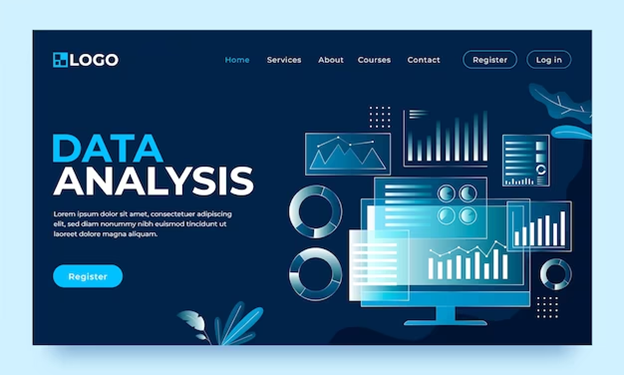Information technology and Data Analysis
Computer systems analysts serve as a bridge between IT and management teams. At PHILLY-TECH, students will learn the diagnosing database and computer systems issues. Students will analyze the systems and processes, advising leadership on new technologies to increase productivity. Students will learn and maintain an organization’s technological efficiency. In addition, students will learn systems, which is the process of observing systems for troubleshooting purposes.
At PHILLY-TECH, the computer network architects program provides students with experience in design and build data communication networks, including local area networks (LANs), wide area networks (WANs), Network Architects design LANs, WANs, and internet. Our computer network architecture is based on the physical and logical design of the software, hardware, protocols, and transmission of data. Students will learn how businesses and organizations access, use and benefit from the internet.
The program will continuously adapt to evolving IT and data analysis technologies and practices. Students will have the opportunity to work on real-world data analysis and IT projects, building a portfolio that prepares them for careers in data analysis, IT support, data science, and other related fields.

Diploma in Information Technology and Data Analysis Program
Duration: 2 years (4 Trimesters)
Prerequisites: High school diploma or equivalent
ITECD 100: Introduction to Information Technology (IT) and Data Analysis
- Overview of IT and data analysis
- The importance of data-driven decision-making
- Ethical considerations in data analysis
COMP 100: Computer Fundamentals
- Computer hardware and software basics
- Operating systems and file management
- Computer networks and the internet
DATS 100: Data Types and Structures
- Data representation and storage
- Data types (numerical, categorical, text)
- Data structures (arrays, lists, dictionaries)
IPROG 100: Introduction to Programming
- Introduction to programming languages (Python, R)
- Basic programming concepts (variables, loops, functions)
- Writing and running simple programs
DATPROC 100: Data Preprocessing
- Data cleaning and handling missing data
- Data transformation and normalization
- Exploratory data analysis (EDA)
ISTAA 100: Statistical Analysis
- Descriptive statistics and measures of central tendency
- Inferential statistics and hypothesis testing
- Regression analysis and correlation
DATVIS 100: Data Visualization
- Data visualization libraries (e.g., Matplotlib, Seaborn)
- Creating charts, graphs, and plots
- Data presentation and storytelling
DATSQL 100: Databases and SQL
- Introduction to database systems
- SQL queries and database design
- Data retrieval and manipulation with SQL
MLEARN 100: Machine Learning Fundamentals
- Introduction to machine learning concepts
- Supervised and unsupervised learning
- Model training and evaluation
DATCL 100: Big Data and Cloud Computing
- Handling large datasets
- Cloud computing platforms (e.g., AWS, Azure)
- Distributed data processing
ISITINFS 100: Information Systems and IT Infrastructure
- Information systems in organizations
- IT infrastructure components (servers, storage)
- Virtualization and cloud services
DATETH 100: Ethical and Legal Aspects of Data Analysis
- Data privacy and protection regulations
- Ethical data handling and bias considerations
- Compliance with data protection laws
DATPRO 100: Advanced Data Analysis and Projects
- Advanced data analysis techniques
- Capstone data analysis project
- Presentation and documentation of the project
ITPROJ 100: Information Technology Projects
- IT project management and planning
- Real-world IT projects and tasks
- Final assessment and evaluation of practical skills
DATITS 100: Data Science and Information Technology Trends
- Exploring emerging trends (AI in data analysis, blockchain, etc.)
- Data-driven decision-making in organizations
- Career paths and continued learning in data analysis and IT
ITTES 100: Final Assessment and Certification
- Final assessment and evaluation of knowledge and skills
Successful completion of the program leads to the award of the Diploma in Information Technology and Data Analysis
Students have to contact the school administration if they want to take extra credits or transfer credits to pursue the Diploma Certificate or Associate of Applied Science (A.A.S.) Degree in their field of interest. Students will select required number courses in each of the areas listed to meet general education requirements graduation for the A.A.S. Some of these courses can be transferred directly from and to the university system and may be substituted for recommended courses on the outline. Students should speak with an advisor before doing so these selective courses are required for all students.
- Selected Communication Course (Choose two for Diploma or three for the Associate)
ENGL 100: Fundamentals of Speech
CPL 100: Career Planning
CPL 101: Communications and Career Strategies
ENGL 101: Composition
ENGL 102: composition
- Selected Mathematics Course (Choose two for Diploma or three for the Associate)
MATH 100:General Math
MATH 101:Intermediate Algebra
MATH 102:College Algebra
- Selected Social Science Course (Choose two for Diploma or four for the Associate)
ECON 105:Leadership
ECON 101:Principles of Microeconomics I
ECON 102:Principles of Macroeconomics II
SOC 101:Introduction to Sociology
PSYC 101: Introduction to Psychology
HIST 101: History
